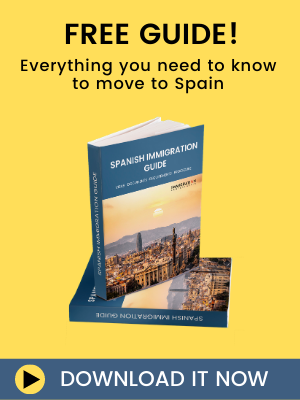
As we have seen in other articles regarding the extended family visa reunification visa, this procedure may fall a little short. The possibility of only regrouping parents, children and your partner, is insufficient for many.
However, there is another solution to get the residency for your relatives in Spain: reunification under the extended family option.
So, if you want to know more about how to bring your siblings, uncles, nephews or any other relative… keep on reading! In this post we cover all the keys and tips to do it successfully.
Content
ToggleWhat is the European extended family visa?
The extended family reunification visa is a type of family reunification that allows you to bring your relatives to Spain (no matter which one) so that they can live with you, granting them the right to work legally in the country.
Unlike the general reunification, this specific type has no limitations as to the family members to be reunited.
However, it is true that in this case there is an important requirement. Only Spanish citizens or citizens of any other European country may apply for the European extended family.
Therefore, our recommendation is that you apply for citizenship as soon as possible. Without it, you will not be able to bring your family.
The law that regulates the procedure
At the end of 2015, a norm that reformed the Royal Decree 240/2007 (law that regulates the community regime), came into force.
This regulation broadened the range of family members that any Spanish or EU citizens can regroup. Thus, it now includes many other relatives that were not included before and that we could not bring to Spanish territory until that day.
Which relatives can you bring to Spain?
The corresponding law does not establish, specifically, which relatives you can bring to the country under the extended procedure. Nevertheless, we can divided them under the three following groups:
Relatives who are not in the first line of consanguinity
Under the family reunification procedure, we can regroup parents, children, and spouse. But under the extended family one, the number of relatives is increased; without the need for them to be in the first line of consanguinity.
Now we can regroup any relative who lives with the Spanish national in the country of origin, or who has directly lived with the Spanish citizen there.
In detail, this would include:
- Brothers/sisters
- Grandparents
- Uncles
- Nephews
- Cousins
- Grandchildren
Family members with disabilities
In addition, we can also regroup those same relatives without the need for them to live under our care. And we can do so as long as they have a high-enough degree of disability.
In this case it will be necessary to demonstrate the degree of disability or illness. And it will be important that this level is sufficient so as that relative needs to live accompanied by us (Spanish citizens).
Stable and long-lasting bonded partner
In the case of the family reunification at a general level, we can reunite our partner or spouse as long as the relationship is registered in the Civil Registry.
Under the extended family, that is not necessary.
That is to say, we can regroup, as Spaniards (or European nationals), any foreigner with whom we can prove that we have a stable and lasting relationship.
What situations are included here? For example: if the couple is in the process of registering their marriage, couples conformed by Spaniards and a foreigner with a child in common, couples who have lived together for some time, etc.. In all these cases, it would be possible.
And to prove it, joint bank accounts, previous cohabitation in the same house, or even trips, photographs and witnesses from third parties that accredit it, would be useful.
You can find out more about how exactly this procedure works here.
What does it mean to be in charge or to depend?
As we have seen, the main requirement to regroup any member of the extended family is to be in charge of that foreign citizen.
But what does that mean?
Being in charge means that, in order for that person (the foreigner who wants to live in Spain) to have a stable standard of living in his or her country of origin or where she habitually resides, she requires the financial support of any extended family member of the European Union in order for that to be possible.
And, in that sense, there are many legal ways to prove it.
You can use a joint house register, monthly money transfers, cohabitation means, etc.
In addition, whether or not this is well demonstrated will depend to a large extent on the assessment issued by the immigration office. Each case is analyzed in isolation and taking into account each and every one of its particularities.
So it will be very important that you continue reading and write down all the advice we will be giving you to demonstrate economic dependence properly.
Requirements to regroup with the extended family
Whichever family member we want to regroup, there are a number of requirements that you must meet in any case:
- You must have Spanish nationality or be citizen of any other EU country.
- It is important to prove the kinship bond. Depending on the relative, one method or another will be used, but the birth/family book is usually required.
- The foreigner must really need to be regrouped. Either because of illness, disability, academic situation, or basically because she does not have other direct relatives who can take care of her.
- The applicant (Spanish citizen) must have sufficient financial means to maintain the foreigner in Spain. In other words, they must submit an employment contract for a minimum of 1 year.
- The regrouped person must have private medical insurance, with the same coverage the Spanish health system would offer, without co-payments or shortages.
How to demonstrate the economic dependance
As we have seen in point 3, one of the reasons why foreign citizens can be regrouped is because Spanish citizens support them economically.
How can we prove that (since this will be fundamental)?
Firstly, through money transfers. That is to say, it will be important that the EU citizen has sent, at least during the last 12 months, amounts of money equivalent to the minimum wage of the country in which the foreigner lives.
However, the immigration office may review transfers up to 24 months earlier.
In addition, the payment of certain invoices or expenses can also be a good way of proving support.
Which is the legal process step by step?
The application procedure is pretty simple.
Appointment with the notary
The European citizen in Spain must go to the notary. By means of a notarial letter, he states that he wishes to initiate the reunification process for that specific relative. This is in addition to proving the economic dependence and the availability of sufficient economic means to support the foreigner once in Spain.
In addition to the identity documents of the applicant, the notarial letter is sent to the country of origin of the foreigner; or where she habitually resides.
Visa application at the Spanish consulate
Depending on the country of origin, a visa will be required to enter Spain or not. In countries such as Colombia, for example, it is not necessary.
If necessary, an appointment will be made with the Spanish consulate, in which you must submit:
- All the documentation sent by the applicant in Spain
- Documents proving kinship, such as duly legalized birth certificates
- Papers showing the medical situation for which we have to be regrouped (this in case of disability or illness)
- Documents demonstrating the economic dependance
- Passport
Entering Spain and getting the residency card
Once with the visa (or without it depending on the country), the foreigner will be able to enter Spain. She will then have to get an appointment with the immigration office that corresponds to her according to the city in which she is living with the Spanish citizen.
On the day of the appointment, you must provide the same documents you submitted at the consulate, plus the documentation that shows that the applicant has sufficient economic means, and that the foreigner has private medical insurance.
After the resolution, the foreigner will get his community card, which allows him to live and work for 5 years in the country.
Tips and advice to get the extended family visa
As you may already know, the extended family process is difficult to get accepted. And that is basically because demonstrating its requirements is not an easy task.
In that sense, here you will find 6 useful tips that will ensure everything works out as expected:
Elaborate properly and spend time preparing the application
There is no doubt that the key to the extended family reunification is being able to effectively demonstrate that the foreigner or regrouped person really needs to live with the Spanish citizen, and that he or she is in charge of him or her.
In order to do this, it will be essential to prepare and work with the application file as much as possible.
You must provide all the necessary documentation and effectively demonstrate both the dependency relationship and the family relationship.
As we have said, this procedure is not as strict as the others in the sense that if you meet the established requirements you are granted the card.
In this case, the Immigration Office will analyze it in detail, so you should make a good case for this dependency. The more time you spend on the application, the better.
Documents to submit if you are a disabled person
In order to demonstrate the disability of the foreigner (if that’s the case), you must and should submit:
- Medical certificates and medical reports
- Disability card from the country of origin
These are the two most definitive proves.
The foreigner can't be working
If you want to prove that you depend on someone, logic dictates that you can’t have a work contract. This would directly invalidate the assumption.
In addition, if the regrouped is studying (and this is especially important for adults), it will be necessary to demonstrate that such studies are paid by the Spanish citizen in charge.
Clarify the situation of your parents in case you are under 18 years old
If you are under 18, you must provide documentation that clarifies where your parents are or what has happened to them. They are usually the ones who would be in charge.
This includes a death certificate if they are dead, proof of custody by the Spanish citizen, etc.
Have a roundtrip plane ticket
When traveling and entering Spain with a community visa (or without, if they don’t ask for it depending on the country) to obtain a residence card, it is important to have also bought the return ticket.
The foreigner travels to Spain with the expectation of obtaining the residency, but it is not something certain. That is why having a returning flight ticket to the country of origin is important in order to facilitate the procedure.
What the Spanish authorities don’t want is for us to enter with the visa but then stay illegally in the country.
Enter Spain with a private health insurance contract
Even if the regrouping individual contributes to social security himself and has access to the Spanish public health care, this does not cover the foreigner.
Thus, it will be crucial thatthe foreigner has contracted private health insurance when entering Spain.
Rely on expert immigration lawyers to manage the application procedure
Given the complexity of the application, if you want to make sure that everything works as you expect, it is strongly recommended to rely on experienced immigration lawyers to resolve all your doubts and manage the legal procedure.
Thus, you have our team at your disposal; a team with years of experience that will help you bring your relatives to the Spanish territory.
Send us an email and we will clarify all your doubts!
Get in touch with our lawyers and let us guide you step by step:




